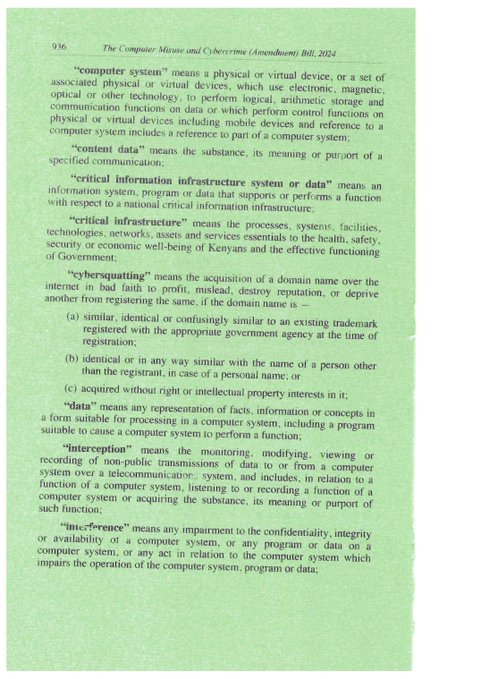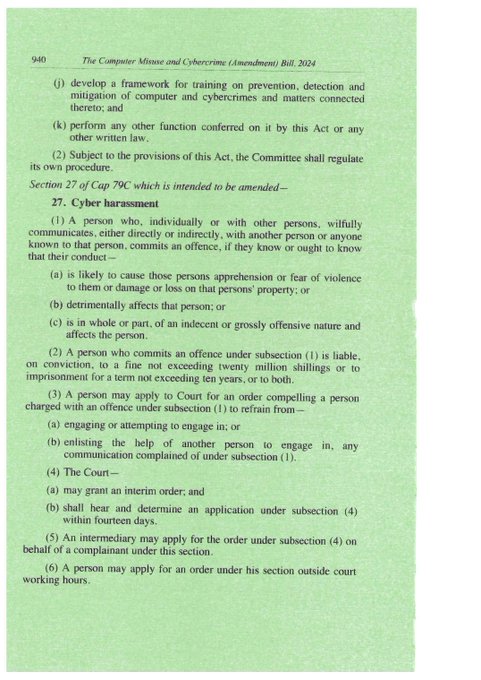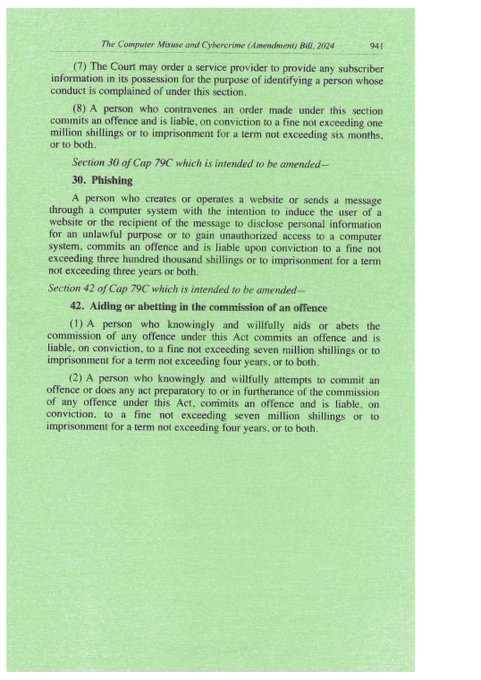NAIROBI, Kenya – The government has moved to counter what it terms widespread misinformation circulating online about the recently enacted Computer Misuse and Cybercrime (Amendment) Act, 2024, warning that many of the claims being shared are either misleading or entirely false.
In a statement posted on X, Principal Secretary for Internal Security and National Administration Dr. Raymond Omollo urged Kenyans to read the amended law for themselves instead of relying on social media interpretations or selective summaries.
“A lot of what is being shared online about the amended Computer Misuse and Cybercrimes Act is misleading or outright false. We encourage citizens to read the adopted Bill themselves to understand what has actually changed,” said Dr. Omollo.
He said that contrary to online speculation, the amendments are progressive and seek to strengthen Kenya’s cybersecurity framework, particularly by expanding the powers of the National Computer and Cybercrime Coordination Committee (NC4).
Much of what is currently circulating online about The Computer Misuse and Cybercrimes (Amendment) Act, 2024 is misleading or entirely inaccurate.Rather than depending on media summaries or social media commentaries, citizens are encouraged to read the adopted Bill to
Under the revised law, the NC4 is now authorized to issue legal directives against websites and online platforms involved in activities such as child pornography, human trafficking, and terrorism.
Dr. Omollo added that the amendments introduce tougher penalties for harmful online behavior, including deliberate actions that lead to suicide, which he described as part of the government’s broader effort to curb digital abuse and protect citizens from new forms of cyber harm.
“These reforms reflect our commitment to ensuring that Kenyans are protected from emerging online threats while maintaining a secure digital space,” he said.
The PS said the changes come as Kenya advances its Digital Superhighway, one of the flagship pillars of the Bottom-Up Economic Transformation Agenda (BETA), adding that a safe and trustworthy online environment is critical for innovation, e-commerce, and data protection.
The Computer Misuse and Cybercrimes (Amendment) Bill, 2024, sponsored by Wajir East MP Aden Mohamed, was passed earlier this year and seeks to reinforce regulations against unlawful online activity — including exploitation of minors, terrorism, and religious extremism.
Among its key provisions is the expansion of the NC4’s role, empowering it to restrict access to websites or applications that promote illegal content or extremist ideologies.
The law also broadens the definition of cyber harassment, making it an offence for anyone whose online communication incites violence, property damage, or harm to another person.
Offenders face a fine of up to Ksh 20 million, imprisonment for up to 10 years, or both.
Other new measures include expanded penalties for phishing and identity theft, with individuals found guilty of creating fake websites or sending deceptive messages to obtain personal information facing fines of up to Ksh 300,000 or three years in prison.
Additionally, a new clause criminalises unauthorised SIM swapping, making it punishable by a fine of up to Ksh 200,000 or two years in jail, or both.







